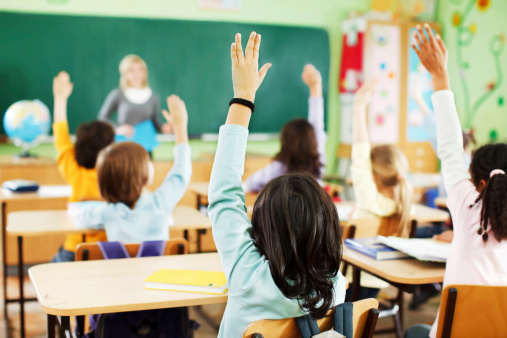
What leads to success in school?
Recent research suggests success is partly driven by character skills. “Grit,” for example, or perseverance and passion for long-term goals, seems to be a better predictor of success than IQ in school and beyond.
Researchers have also demonstrated that having a “growth mindset,” meaning that a person recognizes that abilities are not fixed, but developed through practice, is associated with academic success.
Researchers at Research Schools International are exploring other character skills that might contribute to success. In a recent study, we explored the relationship between happiness and student achievement.
Are happy students more successful in school? What makes students happy?
Happiness and academic success
First, what exactly is happiness?
Harvard psychologist Daniel Gilbert defines happiness as frequent positive feelings accompanied by an overall sense that one’s life has meaning.
Psychology research has shown a strong link between happiness and success in the workplace. For example, Gilbert and colleagues have shown that happier employees tend to perform better, earn more money and be more helpful to their coworkers.
Education researchers are only beginning to explore the relationship between happiness and school achievement.
Researchers at Research Schools International partnered with administrators, teachers, and students at St Andrew’s Episcopal School and The Center for Transformative Teaching & Learning to study happiness and academic achievement.
Results revealed a significant correlation between happiness and academic success. Moreover, we found that relationships are fundamental to students’ happiness.
The impact of happy thoughts
We collected data on happiness and grades from 94% of the student body (435 students) at St Andrew’s, including elementary, middle and upper school students. We developed developmentally appropriate surveys to measure students’ happiness with feedback from teachers and students at the school.
We also worked with administrators and teachers at the school to collect data on students’ GPAs.
Our results revealed that, on average, students who reported being happier had higher grades. Specifically, we found a statistically significant correlation between happiness and students’ GPA from elementary school through high school.
Students often reported that happiness, or positive feelings like enjoyment or fun, supported their schoolwork. One student shared, “In school I feel happy and accepted, which allows for a fun and free learning experience.” Yet another explained, “I always feel pushed to do my best when I have a project that I find to be really interesting and fun.”
One student summed it up, “I only do good work when I think happy thoughts.”
Relationships are fundamental to happiness
Our next question was, what supports students to be happy?
We found that a network of supportive relationships is at the heart of happiness. Results showed that the quality of students’ relationships with teachers and peers predicted their happiness. Across all ages, students with positive relationships were more likely to be happy.
Although voiced in different ways, time and again students of all ages emphasized that their relationships are fundamental to their happiness. As one student shared, “In school I feel happy. I think I feel this way because I’m surrounded by my friends, and around teachers that are very nice and caring.”
Another student echoed this sentiment, “I feel happy because I feel like I am surrounded by a great group of friends and teachers.” Yet another expressed, “I feel happy while I am in school. I feel this way because I have my friends.” Another explained, “I am only happy in school when I feel that I have a group of good friends. Friends are what makes me very happy, energetic, and enjoy school.”
These results suggest that there is an important relationship between happiness and academic achievement.
While more research is needed to explore the relationships among happiness, social networks, and achievement in a school setting, the findings of this study are consistent with earlier ones in positive psychology.
As positive psychologists Daniel Gilbert and Matthew Killingsworth explain:
“If I wanted to predict your happiness, and I could know only one thing about you, I wouldn’t want to know your gender, religion, health, or income. I’d want to know about your social network – about your friends and family and the strength of the bonds with them.”
We couldn’t agree more.
This article originally appeared on The Conversation
More Must-Reads from TIME
- Why Biden Dropped Out
- Ukraine’s Plan to Survive Trump
- The Rise of a New Kind of Parenting Guru
- The Chaos and Commotion of the RNC in Photos
- Why We All Have a Stake in Twisters’ Success
- 8 Eating Habits That Actually Improve Your Sleep
- Welcome to the Noah Lyles Olympics
- Get Our Paris Olympics Newsletter in Your Inbox
Contact us at letters@time.com